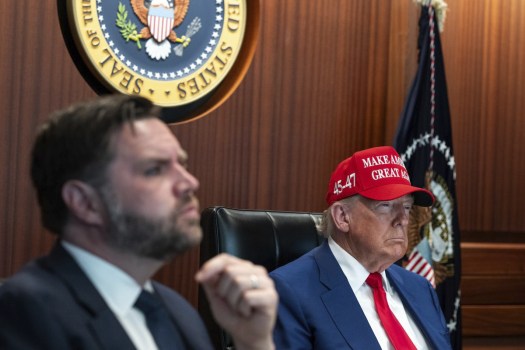Sacramento has become the focal point of controversy following disturbing revelations about the discussions among members of Young Republican groups. Vice President JD Vance expressed dissatisfaction after Politico reported that some group leaders made inflammatory remarks, including referring to Black individuals using derogatory terms and discussing violent actions against political opponents. Vance, known for previous contentious statements, focused his ire on the backlash rather than the content of the chats.
In a post, Vance criticized what he termed the “pearl clutching” reaction to the leaked messages, which included remarks about putting political adversaries in gas chambers and even references to Adolf Hitler. While the Vice President shared these remarks to highlight perceived hypocrisy from critics, he did not address the chilling nature of the comments themselves.
The conversations were not just the musings of college students; many participants are established professionals, including a chief of staff for a GOP lawmaker and an elected state senator. This context has raised concerns about the normalization of extremist rhetoric within the party. To their credit, the Young Republicans organization issued a strong condemnation of the comments, though they faced significant backlash from some party members who criticized the apology.
The current state of the Republican Party marks a significant departure from its past. Once characterized by a mixture of conservative ideologies, the party now increasingly aligns with a more extreme right-wing narrative. This evolution has been noted by observers, including former GOP presidential candidate Pat Buchanan, who argues that the party reflects a shift towards a more exclusionary view of American identity.
Online discourse within the party has become increasingly hostile, with prominent figures like Tucker Carlson hosting guests who espouse controversial views on historical events, including Nazi Germany. This shift raises questions about the leadership within the GOP, with many feeling that the party is no longer guided by moderating influences.
The conversations among Young Republicans are emblematic of a broader trend. Comments that would have once been considered unacceptable have become part of the political landscape. Observers note that this change reflects a party that is increasingly comfortable with radical ideas, diverging sharply from the values espoused by leaders in previous decades.
On the same day reports about these chats emerged, the New York Times revealed that the administration is contemplating major changes to the U.S. refugee system. This proposal aims to drastically reduce the program while prioritizing English speakers, white South Africans, and Europeans opposing migration—a move that aligns with long-standing calls from the far-right factions within the party.
While it is essential to acknowledge that all political movements have their share of extremist elements, the current climate within the GOP suggests a troubling shift towards radicalization. For many, the discussions among Young Republicans are not mere youthful folly but indicative of a deeper ideological transformation that could have far-reaching implications for the party and its constituents.
As the situation continues to unfold, the implications of these conversations and the responses from party leaders will likely shape the political landscape in the coming months. The question remains whether the GOP can reconcile its current trajectory with its historical foundations or if it will continue down a path marked by division and extremism.





































































